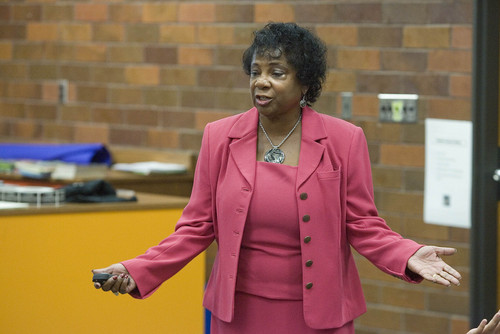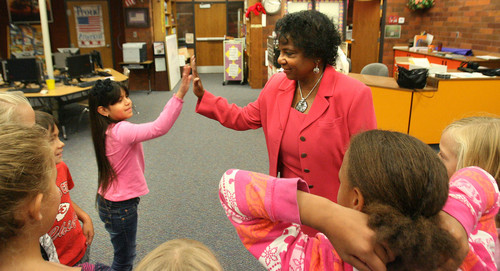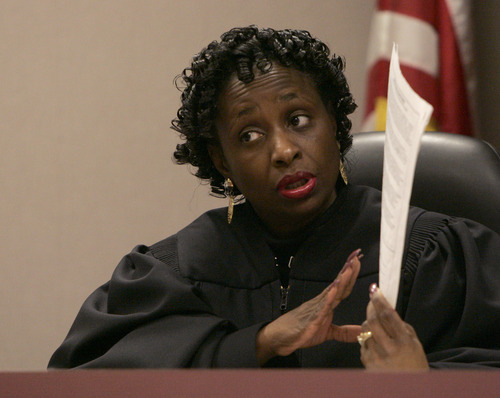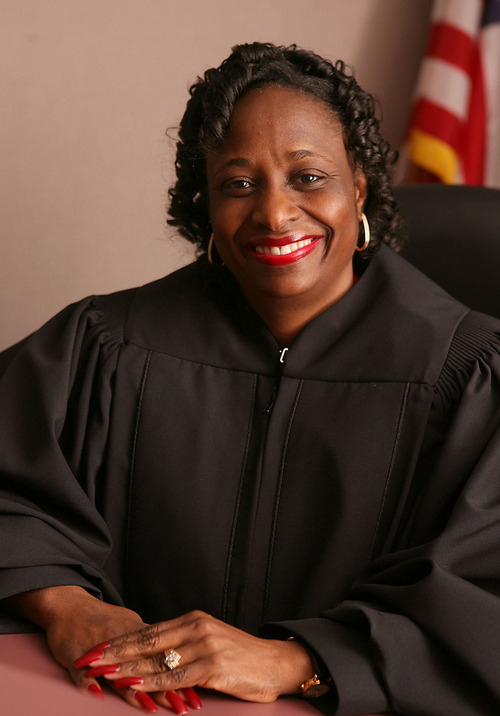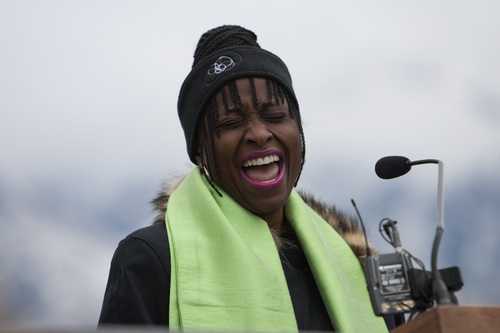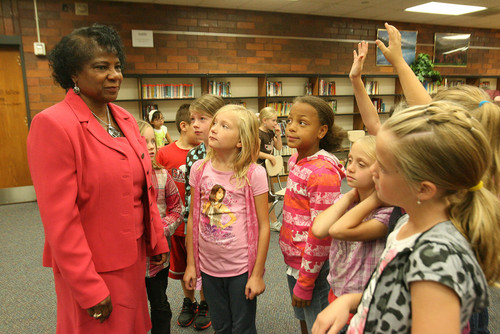This is an archived article that was published on sltrib.com in 2014, and information in the article may be outdated. It is provided only for personal research purposes and may not be reprinted.
As a college student in 1960s Virginia, Joyce Gray entered diners from a back door marked "colored."
She sat with fellow students at a Woolworth's counter to protest such segregation.
Years later, Gray would become an award-winning Utah school administrator and the state's first African-American principal.
Now, when she recounts such details to students and others, "They say, 'Why you don't hate white people?'" she said Thursday. Her reply: "I don't have time for that. Because when you hate and you waste your energy that way, that slows you down, that stops you."
Gray, Salt Lake County Justice Court Judge Shauna Graves-Robertson and eight other black Utahns join President Barack Obama, poet Maya Angelou, jazz guitarist B.B. King and hundreds of others in telling their stories for a recently released digital oral history collection at the Library of Congress.
Washington-based nonprofit History Makers originally started collecting hundreds of recordings of black Americans before giving the collection to the nation's library.
Project director and founder Julieanna Richardson calls the oral histories' move "momentous," because it ensures their safekeeping for decades to come.
Library of Congress curator Mike Mashon, who will manage the ongoing project, agrees.
"History Makers is certainly a rich tapestry of African-American history from the people who lived it," he said this week.
Gray and Graves-Robertson came to Utah through very different experiences.
Born in the segregated South in the 1940s, Gray ultimately moved west with her husband, a Utah native, in 1980. She earned a doctorate at the University of Utah and became principal of Arcadia Elementary in 1984, moving on to lead Bryant Middle School and eventually West High School.
Graves-Robertson's parents arrived in Utah in the 1950s. She was born and raised in Salt Lake City. The 56-year-old judge studied criminal justice at Arizona State University and interned with Sen. Orrin Hatch before returning to Utah. She graduated from the University of Utah's law school and led the state's Office of Black Affairs.
Graves-Robertson was surprised to learn she'd been selected for the project. But it made sense soon after, she said.
"Unfortunately, I'm the only African-American female judge in the state. So that in and of itself is historic in nature," she said Thursday.
Utah's first black judge was Tyrone Medley, who retired from 3rd District Court in 2012.
Graves-Robertson said she routinely speaks to law students and others. Her advice to them, and especially to young women of color who also wish to be judges: "Work as hard as you can. And surround yourself with people who care about you."
When she travels for conferences of the National Bar Association, she says many of her counterparts in other states are surprised to learn that Utah is home to any minorities at all.
"They say, how is it? How do they treat you? How are you able to stay on the bench?" she said. "The rest of the country does not see this as a place where African-Americans would thrive and flourish and grow." She belongs to Alpha Kappa Alpha, an African-American community service-oriented sorority, where she also tries to dispel that notion.
"You can thrive and develop anywhere," she said.
Gray, named Utah's principal of the year in 1999 while at West, is now retired, but works as a consultant for schools nationwide to help manage student behavior and cater to student learning needs.
She cites continued mentoring from her fifth-grade music teacher, her mother's insistence that she earn a college degree and her own commitment to seek opportunity, despite violence and segregation during her youth, as stepping stones on her path to becoming an educator.
The histories of eight other Utahns, including former University of Utah football star and Associate Vice President for Diversity Ronald Coleman and Larzette Hale-Wilson, the first black woman to get a Ph.D. in accounting and the former president of Alpha Kappa Alpha, are included in the project.
The collection, started in 1999, now contains thousands of interviews that span 39 states and dozens of countries. Organizers say it is the nation's largest African-American video archive.
Some can be viewed online at http://www.thehistorymakers.com. —
History Makers
The list of Utahns in the project also includes:
Donald Carpenter • Weber State University sociology professor
Ronald Coleman • University of Utah African-American history professor
Forrest Crawford • Weber State University professor
Rev. France Davis • Calvary Baptist Church
Larzette Hale-Wilson • CPA and accounting Ph.D.
Donald Harwell • PowerStream, Inc. sales vice president
Emma Houston • Utah state Girl Scouts director
Wilfred D. Samuels • African-American Literature and Culture Society founder


